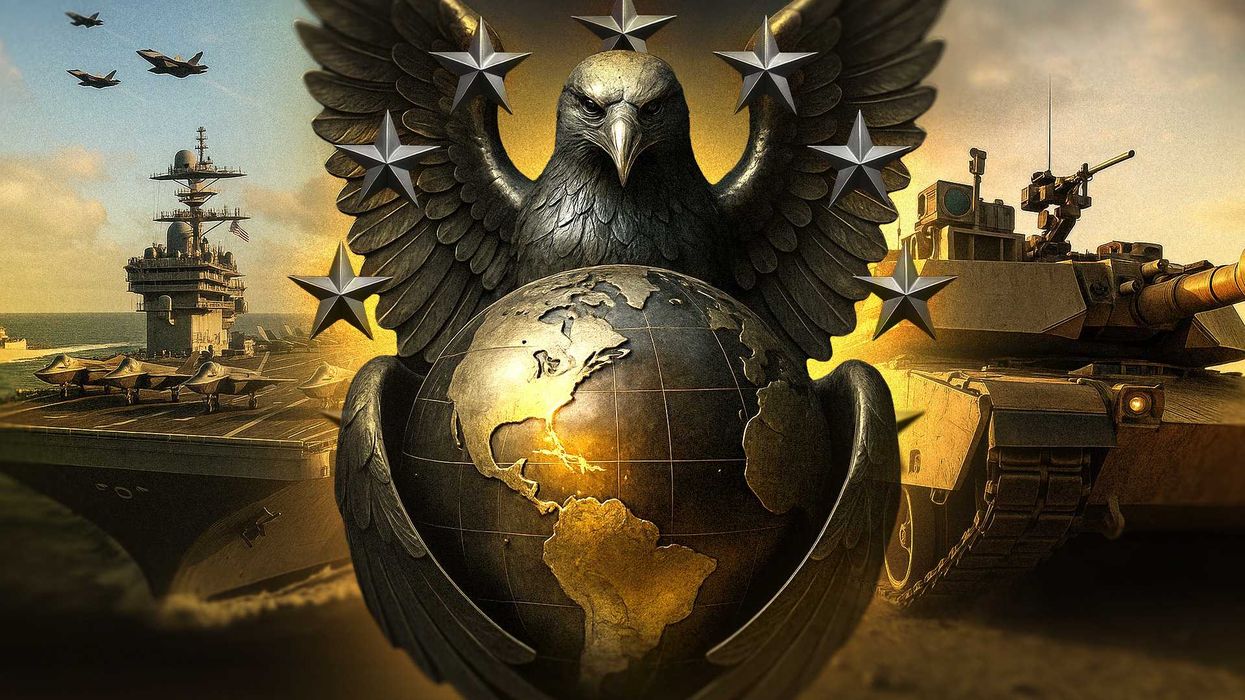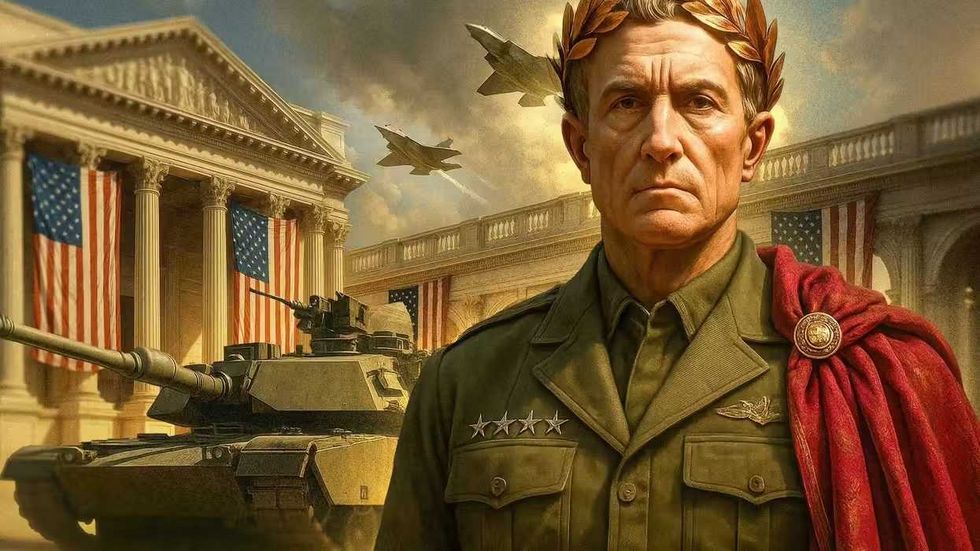
Category: Self-government
We’re not a republic in crisis. We’re an empire in denial.

Forms of government are not laboratory specimens. You cannot line them up like competing scientific theories, test them under controlled conditions, and then apply the “correct” model to every nation on earth.
The United States learned that lesson the hard way in places like Afghanistan. The George W. Bush vision of exporting liberal democracy across the world was delusional because cultures differ and human beings are not blank slates. People must be governed in ways that align with their nature and customs.
If conservatives wish to make the United States a republic again, they must begin by admitting what America has become.
Government forms have limits. They are not universal ideologies that can fit any situation, and when nations ignore those limits, they fail. America keeps expanding beyond what a republic can bear and refuses to admit it, with predictable consequences.
In its classical form, a republic rests on a set of virtuous citizens capable of self-government through shared beliefs, values, and customs. Citizenship is limited and precious. It conveys as many responsibilities as rights. Citizens do not gain the vote simply because they reside inside a border. They earn it through constant engagement with the body politic. They are soldiers, business owners, family men, and stalwart church members. They have shown both a willingness to sacrifice for society and the capacity to contribute meaningfully to it.
The phrase “self-governing” can mislead because it suggests isolated, autonomous individuals. That is not what classical thinkers meant. A republic needs the lightest touch of any governmental form because the community reinforces itself. Citizens hold each other to account.
From Aristotle to Machiavelli to the American founders, the assumption was the same: A republic requires a virtuous people bound by thick ties of identity and shared moral expectations. Formal authority exists, but most of the real enforcement happens through custom and communal pressure, with the civil magistrate stepping in only when necessary. A republic works only when its people possess enough virtue and cohesion to govern themselves.
That is why republics are rare. They have a strict limitation: scale.
Most successful republics in history have been compact city-states with contained populations capable of maintaining identity and virtue. Once a republic expands, it must incorporate people who do not share its customs or worldview. In “The Prince,” Machiavelli warns rulers who wish to expand that they should only conquer nations sharing similar religion, language, and heritage. That common ground allows the conquered population to assimilate.
Ruling peoples with radically different cultures is far more difficult because the subjects cannot easily accept the rule of a leader whose assumptions differ so dramatically from their own.
A country that does not share culture, religion, tradition, or heritage cannot function as a republic because the people lack the common ground necessary for self-rule. The gaps are too wide to be bridged by normal political debate. A stronger form of authority becomes necessary to bind disparate groups together.
This is why kingdoms and empires are far more common throughout history. Most populations do not possess the cohesion or virtue required for republican government and must instead be ruled by a king. Empires are simply multicultural kingdoms, held together by an emperor who forces cooperation among groups that otherwise could not form a single polity.
Even classical empires understood the need to respect the character of their diverse subjects. Wise rulers did not attempt to make every people act the same. They allowed local custom to continue as long as taxes were paid and troops supplied. Local leaders were often retained. Sometimes a local king stayed on his throne but only if he showed deference to the emperor. The multicultural empire required a much stronger hand, though wise emperors used that power sparingly.
This historical reality explains much about the behavior of modern liberal democracies. Many citizens wonder why their leaders insist on importing large numbers of foreigners despite popular opposition. Cheap labor and imported voters are part of the answer, but in the end, it comes down to the pursuit of raw power.
RELATED: Do you want Caesar? Because this is how you get Caesar
 Blaze Media Illustration
Blaze Media Illustration
Large-scale immigration introduces deep cultural differences that destabilize the political order, and the only way to manage that instability is more centralized authority. A liberal democracy that becomes too diverse must govern in the manner of an empire. Its leaders must exercise the level of authority required to hold multiple nations together under one state.
The fact is, multicultural societies trend toward authoritarianism. They must. The differences are too great to manage through ordinary civic persuasion. This dynamic intensifies when the state attempts to integrate its various peoples rather than allowing them to exist separately. By transforming their democracies into multiethnic empires, Western leaders acquire imperial levels of power while maintaining the appearance of popular rule.
No republic can survive the level of diversity now celebrated as a civic virtue.
If conservatives wish to make the United States a republic again, they must begin by admitting what America has become. The country has been transformed into a multicultural empire and is governed accordingly. It grants immense power to its ruling elite in the hope that it can manage the instability produced by extreme diversity.
A republic cannot endure under these conditions. America must end immigration, scale back its foreign ambitions, and cultivate a shared, virtuous culture. Without these steps, talk of republican revival is performative. The structure of a republic cannot survive the substance of an empire.
If Americans will not reclaim the unity that makes self-government possible, then they will be ruled, not represented. Republics are earned. Empires are endured.
search
categories
Archives
navigation
Recent posts
- Gavin Newsom Laughs Off Potential Face-Off With Kamala In 2028: ‘That’s Fate’ If It Happens February 23, 2026
- Trump Says Netflix Should Fire ‘Racist, Trump Deranged’ Susan Rice February 23, 2026
- Americans Asked To ‘Shelter In Place’ As Cartel-Related Violence Spills Into Mexican Tourist Hubs February 23, 2026
- Chaos Erupts In Mexico After Cartel Boss ‘El Mencho’ Killed By Special Forces February 23, 2026
- First Snow Arrives With Blizzard Set To Drop Feet Of Snow On Northeast February 23, 2026
- Chronological Snobs and the Founding Fathers February 23, 2026
- Remembering Bill Mazeroski and Baseball’s Biggest Home Run February 23, 2026






